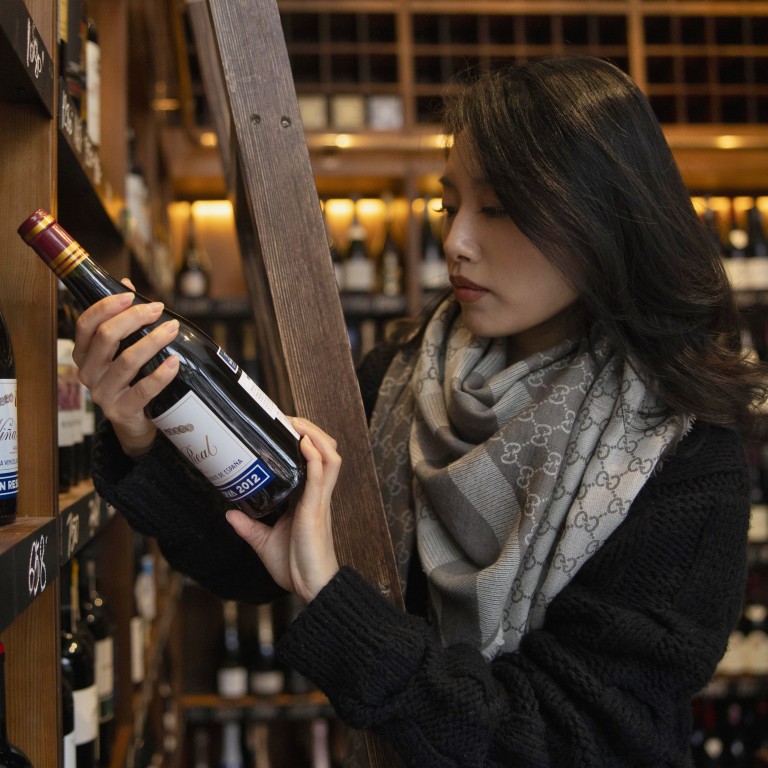
China, Australia agree to move ahead with WTO wine-tariff dispute that has cost 100 million litres in sales
- Anti-dumping duties of between 116.2 and 218.4 per cent have been imposed on Australian wines in containers of two litres or less since March
- The duties are set to be applied for five years, but the World Trade Organization (WTO) agreed in October to establish a dispute-settlement panel
China’s decision to allow its dispute with Australia over Beijing’s import tariffs imposed on Australian wine – costing the industry 100 million litres in sales – highlights both a willingness and reluctance to adhere to World Trade Organization (WTO) principles, according to a trade expert.
Both China and Australia can contest duties via the global trade body, although the dispute court – the WTO Appellate Body – is currently crippled and sits empty following repeated blocks by the United States to appoint new judges.
South African wine exporters raise a glass to new China opportunities
According to Bryan Mercurio, a professor of trade law at Chinese University of Hong Kong, China and Australia have agreed “they will not ‘appeal into the void’ but instead use the MPIA”.
In WTO terms, as there is no Appellate Body to hear an appeal against a ruling, any appeal effectively derails an action since there is no court to hear it, and this can result in cases being “appealed into the void”.
A better course of action should have been simply allowing the panel report to be adopted. This shows that China is also alienating from the WTO
“I think it’s good that China agreed to use the MPIA. This shows that they are still affirming the principles of the WTO,” said Henry Gao, an associate professor of law at Singapore Management University.
“At the same time, a better course of action should have been simply allowing the panel report to be adopted, like the US did in the recent Spain olives dispute. This shows that China is also alienating from the WTO.”
At the same meeting on Monday, the US accepted a ruling that it had imposed illegal anti-subsidy duties on Spanish olives. The US could have blocked the ruling via an appeal, but it then risked retaliatory measures from the European Union.
China marks 20 years at WTO, but rising costs and trade tensions loom large
“Chinese perspective on the WTO has changed from viewing it as the symbol for its aspiration to integrate into the world economy, to trying to assimilate the Chinese economic system with that of the market-based multilateral trading system, to increasing alienation from the core values of WTO in response to the attacks on [China’s] economic system,” Gao said in a recent paper that marked China’s 20th anniversary of WTO membership.
According to a report from Wine Australia released last week, a loss of premium wine sales to China is the primary reason for a lower average value for exports.
“Wine Australia is continuing to monitor the progress of the WTO dispute settlement between Australia and China, and will await further updates in the new year,” said a statement from Wine Australia on Wednesday.
The tariffs imposed on Australian wine exported to China resulted in a 5 per cent decline in export volume in the year to the end of June, due to “the loss of around 100 million litres in exports to mainland China”, the report said.
The members seem to cherish the opportunity to appeal, and the MPIA accomplishes this
“The MPIA is a temporary solution that permits participating members to appeal existing and future panel reports until the US lifts its concerns regarding the work of the Appellate Body or otherwise agrees to the appointment of Appellate Body members,” Mercurio added.
“While members could simply agree to resolve the crisis by abiding by, instead of appealing against, panel reports, this option is not favoured as a solution. The members seem to cherish the opportunity to appeal, and the MPIA accomplishes this.
“It is a well-designed, short-term solution to the problems associated with the Appellate Body crisis that will allow participating members to appeal panel reports and adjudicate disputes to completion.”

.JPG?itok=J8tgfPmW&v=1659948715)